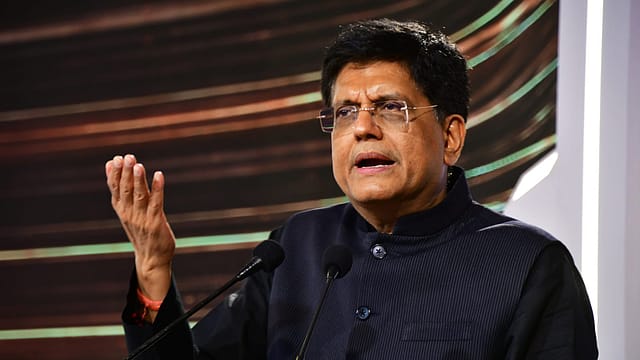Fair, equitable trade deal with the US likely in the near future: Piyush Goyal
ADVERTISEMENT

Commerce minister Piyush Goyal today said trade talks between India and the US are progressing and a “fair and equitable deal” is likely to be worked out in the near future.
“We are in dialogue with the United States of America (USA). Our teams are engaged. We recently had the commerce secretary visit the US. And he met with his counterparts. We continue to engage with them and the talks are progressing,” Goyal said.
“We hope to work towards a fair and equitable agreement in the near future,” Goyal added.
It may be noted that Goyal on Saturday too mentioned that the India-US trade talks are continuing in a congenial atmosphere.
"Trade talks between India and the US are progressing in a very congenial atmosphere. Interests of every section of the economy have to be taken care of in bilateral trade deliberations," Goyal had said on October 18, during a joint press conference with finance minister Nirmala Sitharaman and information and broadcasting minister Ashwini Vaishnaw.
January 2026
Netflix, which has been in India for a decade, has successfully struck a balance between high-class premium content and pricing that attracts a range of customers. Find out how the U.S. streaming giant evolved in India, plus an exclusive interview with CEO Ted Sarandos. Also read about the Best Investments for 2026, and how rising growth and easing inflation will come in handy for finance minister Nirmala Sitharaman as she prepares Budget 2026.
Goyal had underlined that the interests of the farmers, the fisheries sector and the MSMEs, need to be secured. “But cordial talks are going on. Once the decision is made, it will be conveyed to you,” he had said on Saturday.
Bilateral trade deliberations between India and the US came to a grinding halt in July this year when the Donald trump administration announced penal tariffs of 25% on India over and above the Liberation Day tariff taking the total tariff to 50%, for purchasing oil from Russia. Talks between India and the US resumed towards the end of September.
It may be noted that the US is seeking market access in agriculture and dairy, which is not agreeable to India due to the dependence of a large poor population on these sectors of the economy. It was essentially due to this reason that India backed out of the China-led RCEP, along with the concern that due to the lack of corresponding access to Chinese markets, this would have widened the trade deficit with Beijing further.
